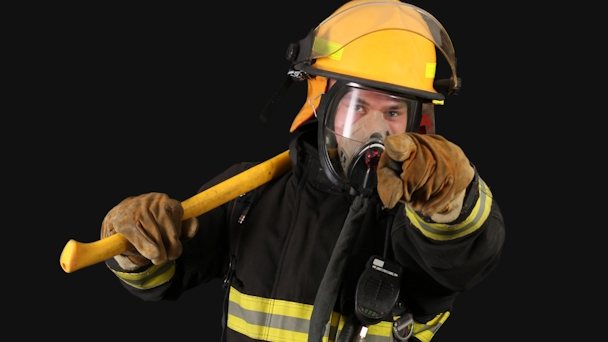Would US voters be influenced more by a firefighter than Kylie Jenner?
In the latest episode of Politics for Drummies, Ryan Davis of authentic influencer-driven political advisory People First discusses an often overlooked yet crucial element of political campaigning – the influence of everyday voices.

Would US voters be influenced more by a firefighter than Kylie Jenner?
Speaking to Politics for Drummies podcast host Alastair Duncan, Ryan Davis of People First suggests that harnessing the power of ordinary citizens such as firefighters, teachers and single mothers during political campaigns can be much more effective than depending solely on celebrity influencers. And with the 2024 US Presidential election on the horizon, he suggests adopting this strategy could ultimately be a game-changer for either candidate.
With extensive experience in digital campaigns, Davis asserts that authenticity is essential for cutting through the clutter of modern politics. He points out that “people are more skeptical of big government and corporations... but they’re not that skeptical of their community members, their teachers, their faith leaders. You know, folks such as firefighters – when you work with people with a real stake in their communities, it breaks through the partisan chamber and starts to have real conversations about issues.” This perspective highlights a shift from flashy celebrity endorsements to a more grounded, grassroots approach that resonates with voters’ lived experiences.
In today’s political landscape, the role of influencers has become increasingly complex and significant, shifting from simple social media endorsements to a more nuanced strategy of targeted engagement. Davis highlights that many campaigns often make the error of focusing on follower counts rather than the quality of the message. He states, “One of the mistakes I see in the space is... folks think of influencer marketing as just sort of the next iteration of celebrity work. Getting those celebrity partnerships is great, but it’s a mistake to only look for people with large followings.”
Want to go deeper? Ask The Drum
Instead, he recommends that campaigns should look for individuals whose voices resonate genuinely within their communities, adding, “If you get 15 single moms in Georgia talking about childcare policy... you can scale those videos on everything from Hulu ads to podcasts, or even boost that content directly from the creator’s profile.”
For Davis, this isn’t merely a theory – it’s a practice he’s put into action through his work at People First, the organization he founded to connect influencer marketing in the commercial sector with its potential in politics. He shares insights on how his team identifies and engages with these local influencers, combining technology with human connection.
Advertisement
“We approach organizing as a campaign that’s really good at digitalization. We use technology to help us identify leads, understand where folks live, what issues they care about and what platforms they’re active on. Then we reach out, sometimes directly through an email or a DM or even by engaging local organizations,” Davis explains. “It’s about finding the very specific folks who would serve as the best messenger for whatever that issue or candidate is.”
One of the most powerful aspects of this strategy, according to Davis, is the element of surprise when everyday people enter the political dialogue. A firefighter who seldom discusses politics but shares his personal experiences with climate change can capture attention in a way that more conventional political figures cannot.
Advertisement
“When you’re working with someone who... is a firefighter from the Midwest and he never talks about politics, when he comes forward to discuss the significance of climate change and what he’s witnessed while fighting forest fires, that content garners immense attention from his followers because it defies their expectations.
“One of the things I aim to do with campaigns is to not just rely on the usual messengers – these political influencers – but to engage individuals who haven’t often spoken about politics. They possess the most political capital, so they can effectively communicate with their audience about an issue they genuinely care about.”
Suggested newsletters for you
Davis also emphasizes the strategic value of utilizing these everyday voices to tackle important election issues in a way that resonates on a local level. Highlighting how this method can alter perceptions and enhance engagement within the community, he says: “We conducted a campaign with seven Democrats from purple districts – individuals representing swing areas who need to appear moderate. We enlisted law enforcement, teachers and other community leaders to create content that demonstrated these candidates weren’t extreme leftists but were in tune with their communities. It’s about localizing the race and making these candidates relatable again.”
As the quest for authenticity becomes a key theme in the upcoming election, Davis believes that leveraging these community voices could be a crucial factor. While celebrities may provide flashy endorsements, it’s the local, relatable voices that genuinely have the ability to influence opinions and boost voter engagement. “It’s not just about reaching voters; it’s about impact.”
